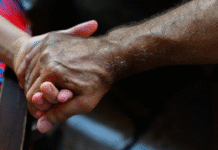A few weeks ago, a message popped up in the corner of my screen. “What do you think about people who have recently had COVID–19 getting the vaccine?” A friend of mine was eligible for a COVID–19 vaccine, but she had recently gotten over an infection with SARS–CoV–2. More people are becoming eligible for vaccines each week – including millions of people who have already recovered from a coronavirus infection. Many are wondering whether they need the vaccine, especially people who have already been infected.
I study immune responses to respiratory infections, so I get a lot of these types of questions. A person can develop immunity – the ability to resist infection – from being infected with a virus or from getting a vaccine. However, immune protection isn’t always equal. The strength of the immune response, the length of time that the protection lasts and the variation of the immune response across people is very different between vaccine immunity and natural immunity for SARS–CoV–2. COVID–19 vaccines offer safer and more reliable immunity than natural infection.
Immunity comes from the immune system’s ability to remember an infection. Using this immune memory, the body will know to fight if it encounters the disease again. Antibodies are proteins that can bind to a virus and prevent infection. T cells are cells that direct the removal of infected cells and viruses already bound by antibodies. These two are some of the main players that contribute to immunity.
After a SARS-CoV-2 infection, a person’s antibody and T cell responses may be strong enough to provide protection against reinfection. Research shows that 91% of people who develop antibodies against the coronavirus are unlikely to be infected again for six months, even after a mild infection. People who had no symptoms during the infection are also likely to develop immunity, though they tend to make fewer antibodies than those who felt ill. So for some people, natural immunity may be strong and long-lasting.
The problem is that not everyone will develop immunity after a SARS-CoV-2 infection. As many as 9% of infected people do not have detectable antibodies, and up to 7% of people don’t have T cells that recognize the virus 30 days after infection.
For people who do develop immunity, the strength and duration of the protection can vary a lot. Up to 5% of people may lose their immune protection within a few months. Without a strong immune defense, these people are susceptible to reinfection by the coronavirus. Some have had second bouts of COVID–19 as soon as one month after their first infection; and, though rare, some people have been hospitalized or even died.
A person who is reinfected may also be able to transmit the coronavirus even without feeling sick. This could put the person’s loved ones at risk.
And what about the variants? So far, there isn’t any hard data about the new coronavirus variants and natural immunity or reinfection, but it is certainly possible that immunity from one infection won’t be as strong against infection with a different variant.



















